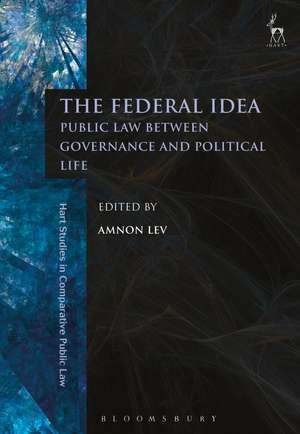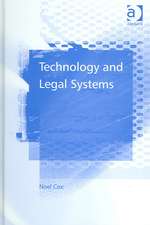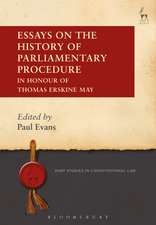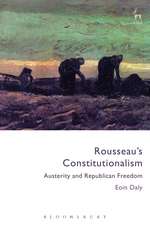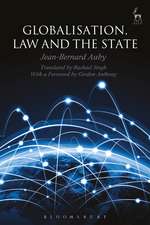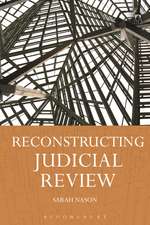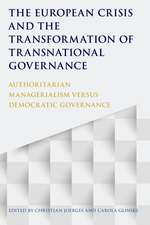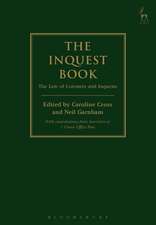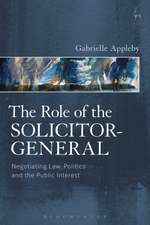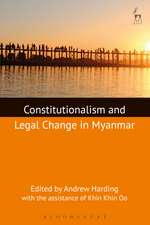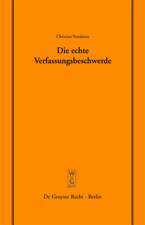The Federal Idea: Public Law Between Governance and Political Life: Hart Studies in Comparative Public Law
Editat de Dr Amnon Leven Limba Engleză Hardback – 9 aug 2017
| Toate formatele și edițiile | Preț | Express |
|---|---|---|
| Paperback (1) | 271.94 lei 6-8 săpt. | |
| Bloomsbury Publishing – 25 dec 2019 | 271.94 lei 6-8 săpt. | |
| Hardback (1) | 571.24 lei 6-8 săpt. | |
| Bloomsbury Publishing – 9 aug 2017 | 571.24 lei 6-8 săpt. |
Din seria Hart Studies in Comparative Public Law
-
 Preț: 380.87 lei
Preț: 380.87 lei - 22%
 Preț: 270.67 lei
Preț: 270.67 lei -
 Preț: 338.34 lei
Preț: 338.34 lei - 18%
 Preț: 323.38 lei
Preț: 323.38 lei - 18%
 Preț: 305.41 lei
Preț: 305.41 lei - 23%
 Preț: 386.15 lei
Preț: 386.15 lei - 22%
 Preț: 251.39 lei
Preț: 251.39 lei - 27%
 Preț: 440.31 lei
Preț: 440.31 lei - 22%
 Preț: 227.81 lei
Preț: 227.81 lei - 22%
 Preț: 270.67 lei
Preț: 270.67 lei - 22%
 Preț: 273.42 lei
Preț: 273.42 lei - 22%
 Preț: 272.51 lei
Preț: 272.51 lei - 22%
 Preț: 270.49 lei
Preț: 270.49 lei - 22%
 Preț: 226.42 lei
Preț: 226.42 lei - 23%
 Preț: 171.85 lei
Preț: 171.85 lei - 30%
 Preț: 576.15 lei
Preț: 576.15 lei - 30%
 Preț: 900.07 lei
Preț: 900.07 lei - 18%
 Preț: 380.74 lei
Preț: 380.74 lei - 21%
 Preț: 279.85 lei
Preț: 279.85 lei - 22%
 Preț: 251.75 lei
Preț: 251.75 lei - 17%
 Preț: 315.19 lei
Preț: 315.19 lei - 18%
 Preț: 321.78 lei
Preț: 321.78 lei - 21%
 Preț: 236.30 lei
Preț: 236.30 lei - 18%
 Preț: 321.78 lei
Preț: 321.78 lei - 30%
 Preț: 960.98 lei
Preț: 960.98 lei - 22%
 Preț: 271.94 lei
Preț: 271.94 lei - 22%
 Preț: 239.59 lei
Preț: 239.59 lei - 18%
 Preț: 322.15 lei
Preț: 322.15 lei - 22%
 Preț: 264.17 lei
Preț: 264.17 lei - 22%
 Preț: 264.57 lei
Preț: 264.57 lei
Preț: 571.24 lei
Preț vechi: 817.38 lei
-30% Nou
Puncte Express: 857
Preț estimativ în valută:
109.33€ • 112.67$ • 92.31£
109.33€ • 112.67$ • 92.31£
Carte tipărită la comandă
Livrare economică 04-18 martie
Preluare comenzi: 021 569.72.76
Specificații
ISBN-13: 9781509907113
ISBN-10: 1509907114
Pagini: 272
Dimensiuni: 169 x 244 mm
Greutate: 0.64 kg
Editura: Bloomsbury Publishing
Colecția Hart Publishing
Seria Hart Studies in Comparative Public Law
Locul publicării:London, United Kingdom
ISBN-10: 1509907114
Pagini: 272
Dimensiuni: 169 x 244 mm
Greutate: 0.64 kg
Editura: Bloomsbury Publishing
Colecția Hart Publishing
Seria Hart Studies in Comparative Public Law
Locul publicării:London, United Kingdom
Caracteristici
Of interest to constitutional and public lawyers, and comparative lawyers with an interest in federalism.
Notă biografică
Amnon Lev is Associate Professor of Law and Philosophy at the University of Copenhagen.
Cuprins
Introduction: Federalism and Public Law Theory Amnon LevI. Making Public Law Work as Theory II. Modes of Federalism III. Aspects of the Federal Idea: An Overview of the Volume Part I: Theorising Federalism1. The Federal Condition Nicholas AroneyI. The Liberal Condition II. The Federal Condition 2. Federation and Empire: About a Conceptual Distinction of Political Forms Olivier BeaudI. The Federation as a Political Form and its Relation to Empire II. The Ideal Typical Opposition between Federation and Empire III. An Illustration in Law: Federative Compact and Federal Treaty IV. Some Remarks on Unity and Diversity 3. Towards a Deontic-Axiomatic Theory of Federal Adjudication Jean-François Gaudreault-DesBiensI. Preliminary Remarks II. Ambitions and Limits of a Normative, Deontic-Axiomatic Theory of Federalism III. Conclusion Part II: Governing the Federation4. Federalism and the Separation of Powers Jessica Bulman-PozenI. Cooperative and Uncooperative Federalism II. Checking the Federal Executive on Behalf of Congress III. Fractal Separation of Powers IV. Conclusion 5. Federalism as a Mode of Governance: Autonomy, Identity, Power, and Rights Edward L RubinI. The Essence of Federalism: Partial Political Autonomy II. The Motivation for Federalism: Divergent Political Identity III. The Features of Federalism as a Modality of Government IV. The Normative Basis for Federalism V. Conclusion 6. Executive Power in Federations Cheryl SaundersI. Federal Design II. Separation of Powers III. Australia IV. Conclusions Part III: Federal Trajectories7. Woodrow Wilson and the Challenge of Federalism in World War One Duncan KellyI. Woodrow Wilson on Democracy and FederalismII. Pan-Nationalism III. Federation and Federalism 8. Federalism and the Ends of EuropeAmnon LevI. Federalism in the European State System II. Theorising the Federation III. Crisis and Post-Humanism: Federalising Europe 9. Federalism and Democracy: The Far-Reaching Dynamism of Democratic Federations Dwight NewmanI. Federalism and Democracy in the Secession Reference II. Federalism as a Response to Divided Demoi III. Federalism and the Construction of Divided Demos-Identities IV. Federalism, Democracy, and Dynamism 10. Federalism and the Plurinational Challenge Stephen TierneyI. Federalism: Why Does it Matter, What is it? II. Inherent Tensions in the Federal Idea III. The Plurinational State and Federalism IV. Why Does this Matter? V. Plurinational Scholarship and the Liberal Theory of the State VI. Implications for Federal Theory and Practice VII. E Pluribus Unum: The Plurinational Challenge VIII. Plurinational Federation and Sovereignty IX. Conclusion
